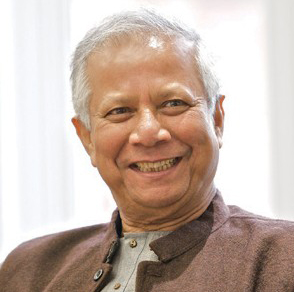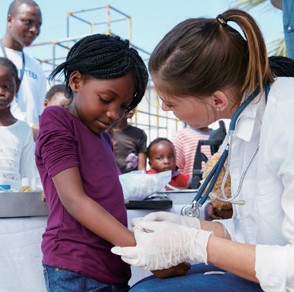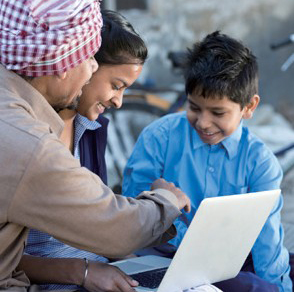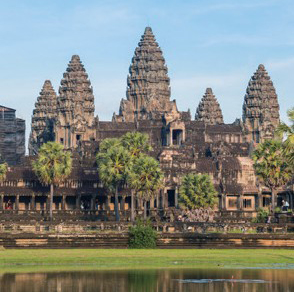Contents
Social Impact
(1) “Making Society Better”
The SocialGood project is a global activity based on a vision of “making society better” that transcends national, racial, religious, and cultural differences, and in which all people around the world can participate.

Mark Zuckerberg, Elon Musk, and Warren Buffett will donate over half of their assets to charities. They are people actively working to “improve society.” (Photos are from Wikipedia)
For the development of future generations, Mark Zuckerberg has declared that he will donate 99% of Facebook’s shares to charity. Since Millennials were born at a time at which their generation is naturally familiar with global technology, they have a sense of being “world citizens” and are naturally thinking about fulfilling social responsibilities, which transcends borders and cultural differences.
Microsoft’s founder, Bill Gates, and Warren Buffet started The Giving Pledge, where they have declared that they will donate more than half of their assets to charities after their deaths. Virgin Group President, Richard Branson and Tesla and Space X’s CEO, Elon Musk, have also made such pledge.
SocialGood holders can have the same impact on improving society. The SocialGood Ecosystem™ works in a way at which all participants within the worldwide will automatically donate a portion of their economic activities to globally contributing organizations. The more SocialGood holders (consumers and investors) purchase the things they like, the more they can improve society.
The SocialGood project plans to register with donation destinations evaluated in the Global Journal Magazine’s Top 100 NGOs, international funds, universities and cultural organizations etc. in each country from the perspective of Innovation, Impact, and Sustainability.

Save the Children (England): Children’s Rights
Grameen Bank (Bangladesh): Microfinance
Doctors Without Borders (France): Medical and Human Rights
Bill and Melinda Gates Foundation (US): Medical and Poverty Problems
UNESCO (France): World Heritage Sites
WWF (US): Wildlife
Seiichiro Yonekura is a member of the SocialGood Team. He is a Fellow Professor at Hitotsubashi University, one of the top ranking colleges of the Japanese academia, and he is currently a Special Advisor for Muhammad Yunus’s Grameen Bank Japan. He is the front runner of the social business.
Global GDP is $745 billion (IMF, 2015). If all of it were covered by the SocialGood Ecosystem™, and if 1% were automatically diverted to donations, $745 billion could be used to make new contributions to society. The social impact of such an amount would be massive.
(2) Automatic Donations Algorithm
For the development of the Algorithm, a joint research and development program is underway with Meiji University in Japan, a university that has received awards for joint research achievements with Panasonic Corporation and SONY Corporation. The automatic donation mechanism is also comprehended in the Business Model aligned in the International Patent which has been already submitted. Tomohiro Takagi, Professor of Meiji University School of Science and Technology, Fellow Professor at the Department of Electrical Engineering Computer Science, UC Berkeley, is also a member of the SocialGood Team. He is the most influential authority in the world in fuzzy theory, one kind of computational artificial intelligence, highly precise recommend engine, and highly precise targeting.
In other words explained in a concrete manner, the SocialGood AI donation adviser is a mechanism for automatically allocating donations to donation destinations that seek the “maximization of spiritual satisfaction,” just like robo money advisers like Wealthfront, Inc. automatically allocate stocks and securities to maximize monetary returns.
The emergence of this kind of SocialGood dates back ten years. Soichiro Takaoka, founder of SocialGood, Inc., has conceived of a mechanism whereby donations are automatically made to UNICEF and WWF each time users' conduct social media activities within the "YUCASEE," an online platform for high net worth individuals who have US$1 million net assets.
“With YUCASEE we use a system for making automatic donations to UNICEF and WWF Japan. Members are automatically awarded points each time they are active within the community. Activities for making donations to UNICEF and WWF Japan from the YUCASEE administrative office are automatically donated based on these points - - - A large sense of satisfaction that one ‘has done a good thing’ emanates from this minor action and raises the desire to ‘do even better.’ I hope that this sort of virtuous cycle will pervade society.” (“Why do Wealthy People Join YUCASEE?” by Soichiro Takaoka, Gentosha, 2008)
At the time of that statement, the work of sending money to fixed donation destinations was performed manually. AI and blockchain technology has advanced over the past 10 years, however, making it possible to dramatically expand user social contribution opportunities via a mechanism enabling automatic donations from SocialGood.
(3) ESG Investments
SocialGood plans to announce “SocialGood ETF” to the market in the future.
The SocialGood cryptoassets, which supports ecosystems that contribute to society, due to its nature, is the target (asset class) of ESG investments by large institutional investors. The acronym ESG is formed using the first letters of the words Environment, Social, and Governance and is currently drawing the attention of the investment industry. Over 1,700 institutional investors and management companies worldwide have already voluntarily signed on to ESG investments under the PRI being promoted by the United Nations Environment Programme (UNEP) and the United Nations Global Compact (UNGC).
Japan’s Government Pension Investment Fund (GPIF), the world’s largest pension fund, has also signed on to ESG. If SocialGood becomes a target of ESG investments, it will likely have a significant impact on the SocialGood price.
The total assets under management by the top 500 largest management companies in the world are $81.2 trillion (according to Willis Towers Watson, 2016). SocialGood could surpass the total market value of Bitcoin ($240 billion as of December 2017) even if, from the perspective of ESG investments, only 0.3% of institutional investor funds flow to it through direct investment or ETF conversion.
(4) Utility Token
SocialGood is a cryptoasset as prescribed in Article 2(5) of the Japanese Payment Services Act and is not a security. It is a complimentary ticket-type utility token. The company issuing tokens and the operating company conducting the cash back business are separate companies.
The main differences between SocialGood and securities are as described below:
- SG does not have any revenue sharing rights or property sharing rights whatsoever from the operating company's business.
- The economic merit of holding 1 SocialGood completely differs depending upon the purchase activity of each holder.
Since security tokens (securities) need to comply with security regulations of each country, the secondary market is not completely sufficient and it is difficult to spread them to general consumers at this time.
On the other hand, even though utility tokens already have a secondary market of over US$300 billion, almost all of them don't have any holding value, like Bitcoin. This is why it is difficult for utility tokens to become popular among investors.
In this regard, SocialGood is a utility token that is in general easy to spread. Patents have already been granted for this type of token design.
(5) Cryptoasset Point Return System-Related Patents
The “Cryptoasset Point Return System” will play a major role in the future of point systems, where existing points are expected to be replaced by cryptoassets in order to reduce company costs and improve consumer convenience.
By utilizing coins for point return systems where the price can be expected to rise over time, compared to other companies that simply use fiat or product exchange point systems, companies that utilize such a system can create a strong impact on customers and differentiate from competitors.
The coin can be used, for example, in the following ways:
- Loyalty programs by using their own points (such as for airlines miles etc.)
- Smart phone payment service providers’ point return systems
- Credit card company’s point return systems
- Shopping mall companies’ point return systems
We have already started discussions to collaborate with major companies.
Our company has already been granted and applied for multiple blockchain related patents, which not only include the “Cryptoasset Cashback Patent” and the “Cryptoasset Point Return System Patent” used in SocialGood Cashback, but they also include the “Token Ecosystem Patent.”
Some patents that have already been granted can be viewed, while others that were already filed cannot be disclosed for a certain period after the applications’ submissions.
